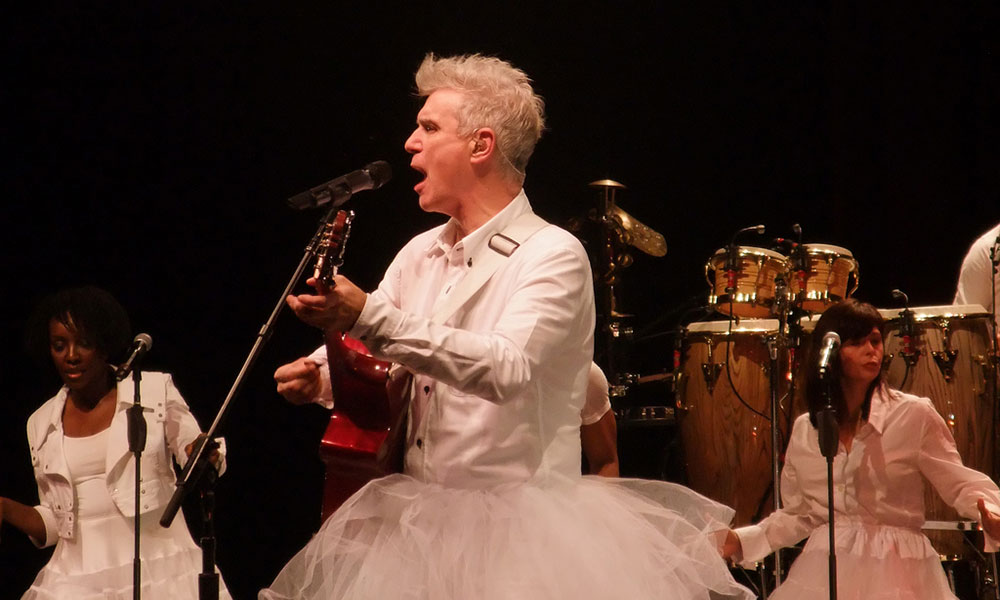
Not “Just a Friend”: Rockers Say Radio Stations Need to Fix Royalties
A number of popular musicians, most notably David Byrne, say that the industry's failure to pay recording artists royalties for radio play needs to stop—and they've formed a coalition to make that point.
A number of popular musicians, most notably David Byrne, say that the industry’s failure to pay recording artists royalties for radio play needs to stop—and they’ve formed a coalition to make that point.
It might sound a little odd that New Wave icon David Byrne covered Biz Markie’s “Just a Friend” at his most recent concert:
But there was a method to his madness—and the former Talking Heads frontman’s oddball cover, which went viral this week, proved an effective way of drawing attention to a real issue for musicians like Markie.
See, Biz Markie’s 1989 hip-hop classic with a chorus that only someone without a soul could hate [Editor’s note: personal opinion], technically wasn’t written by Markie. Sure, he wrote the raps, but the samples weren’t his, nor was the chorus.
“Mr. Markie didn’t write that tune (although he did probably write the rap),” Byrne wrote in a email newsletter prior to the concert, according to Rolling Stone. “The drum and keyboard loop was lifted from a Freddie Scott recording, but the song was written by Gamble and Huff, the great songwriting team that wrote for the O’Jays and the Spinners. So chances are Biz Markie didn’t see any royalties from all the radio play that song got.”
The Message in the Music
Byrne is one of the most famous members of the Content Creators Coalition (CCC), a year-old advocacy group designed to draw attention to intellectual property issues that musicians face, and the concert, titled Artists’ Pay for Radio Play, was a rally to draw attention to a serious issue for musicians: Writers get paid royalties for the songs they make when a song gets played on the radio; performers get nothing but exposure.
Which means that “Just a Friend” was just a loss-leader for Markie, and other artists are in the same boat. Sure, Aretha Franklin might be the first person to come to mind when you think about the song “Respect,” but the estate of Otis Redding, who wrote and first performed it, got royalties from all those plays of perhaps Franklin’s most famous recording—the “Queen of Soul” herself never saw a penny.
The only place where it’s like that in for performers in the developed world is the United States, despite decades of protests by musicians.
The CCC’s message has drawn support from musicians, many of whom also took part in the rally. Cake frontman John McCrea, who you might know as the singer of the second-most-famous version of the Gloria Gaynor classic “I Will Survive” (which, by the way, she didn’t write either), told Newsweek that the issue is clear, especially considering the billions of dollars that commercial radio stations make each year.
“It seems like a morally obvious, low-hanging-fruit sort of issue … Sometimes the people who created the part of the song you remember have been left high and dry,” he said to the magazine. “When huge companies sell advertising on the backs of our work, the people that made that work should get something.”
The coalition, which also used an essay by Byrne to draw attention to an online petition protesting the matter, isn’t alone in its principles here—another group, the I Respect Music coalition, is also taking a stand on the issue.
David Byrne, who led a recent concert protesting performer royalty rates. (photo by Ian Plumb/Flickr)






Comments